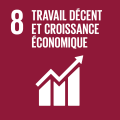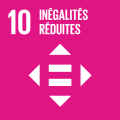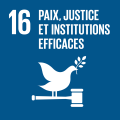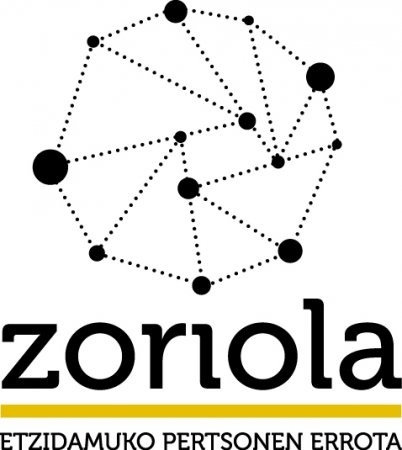
Menores migrantes no acompañados… y cómo construimos el futuro
Este Curso de Verano pretende ser un acercamiento a la actual realidad del fenómeno, así como de su atención para poder identificar buenas prácticas y posibles sinergias. Se quiere también formar a técnicos que tienen cierta responsabilidad en la atención a los diferentes colectivos migratorios.
Description
Este Curso de Verano pretende ser un acercamiento a la actual realidad del fenómeno, así como de su atención para poder identificar buenas prácticas y posibles sinergias para poder así adelantarse y poder tener una mejor atención.
Trasversalmente se quiere formar a técnicos que tienen cierta responsabilidad en la atención a los diferentes colectivos migratorios, así como a aquellas personas que quieren entrar a trabajar en este sector, un entorno caracterizado en Euskadi de una rotación importante de personas que hace que siempre haya necesidad de formar a profesionales que se están incorporando.
Objectives
Comprender las dinámicas políticas, económicas y sociales que se producen en los países de origen del norte de África y en África subsahariana, pues subyacen como causa de los movimientos migratorios.
Conocer el marco jurídico actual y futuro (directivas UE) de protección a la infancia y su conexión con la normativa de extranjería, así como los límites de este en el contexto actual.
Identificar y conocer buenas prácticas en la acogida e inclusión de jóvenes migrantes, desde la atención inmediata a la inclusión laboral y comunitaria. Dificultades y desafíos.
Promover la reflexión sobre los factores clave para una inclusión efectiva en una sociedad vasca cohesionada y próspera de presente y de futuro.
Conocer las necesidades de capital humano del mercado laboral vasco y la importancia que en su respuesta -y la competitividad- tiene la migración.
Activity directed to
- All public
- University student
- Students not from university
- Professionals
Program
26-06-2025
Registro
Institutional Opening session. Speaking order:
- Francisco Javier Cortés Fernández | Eusko Jaurlaritza / Gobierno Vasco - Director de eLANKIDETZA, Agencia Vasca de Cooperación y Solidaridad
“Presentación institucional a cargo de Gobierno Vasco / Eusko Jaurlaritza“Presentation by the Director of the activity
- José Carlos Cabrera Medina | Frontera líquida Consultores
“El futuro de la migración africana hacia Europa“
- Carmen González Enríquez | Real Instituto Elcano - Investigadora Principal
Break
“Menores migrantes, Propuesta y experiencia desde Canarias“
- Francisco Candil González | Gobierno de Canarias - Viceconsejero de Bienestar Social
“Aproximación al Pacto Europeo de Asilo y Migración, y su implementación“
- José Carlos Cabrera Medina | Frontera líquida Consultores
Synthesis
27-06-2025
“La inclusión, motor de competitividad y bienestar. “
- Susana Franco Rodriguez | Instituto Vasco de Competitividad - ORKESTRA - Investigadora Senior
“Mesa de experiencias. Abordajes pioneros d un fenómeno multidimensional“
Transversalización de la Perspectiva Antirracista en el marco de la intervención Social: revisando los puntos de partida
- Unai Zabala Loizate | Agintzari - Coordinador
Asilo en España: Panorama actual y visión hacia el Pacto Migratorio Europeo
- Regla García Colón | Responsable de recurso de acogida de solicitantes de asilo en la provincia de Cádiz
Trapezistak: una buena práctica de alineamiento acogida-inclusión-formación
- Ignacio Fariña Sarasqueta | Gobierno Vasco - Eusko Jaurlaritza - Director de Acogida e Integración de las Personas Inmigrantes
Break
“CONFEBASK: Presentación de estudio. Necesidades del Mercado laboral vasco “
- Carlo Pereda Martinez de Musitu | CONFEBASK - Responsable de empleo
Round table: “Mejorando las estrategias de acogida para garantizar una Euskadi mejor“
- José Carlos Cabrera Medina | Frontera líquida Consultores
- Carlo Pereda Martinez de Musitu | CONFEBASK - Responsable de empleo
- Unai Zabala Loizate | Agintzari - Coordinador
- Regla García Colón | Responsable de recurso de acogida de solicitantes de asilo en la provincia de Cádiz
- Ignacio Fariña Sarasqueta | Gobierno Vasco - Eusko Jaurlaritza - Director de Acogida e Integración de las Personas Inmigrantes
Closing session
- Ignacio Fariña Sarasqueta | Gobierno Vasco - Eusko Jaurlaritza - Director de Acogida e Integración de las Personas Inmigrantes
Synthesis
Directors

José Carlos Cabrera Medina
Frontera Líquida Consultores
Analista y consultor en políticas migratorias y divulgador en medios. Premio Andalucía sobre Migraciones 2022 Compagina su labor de consultor en Frontera Líquida (www.fronteraliquida.es) para administraciones públicas con la labor de profesor en la Universidad Loyola Andalucía, profesor de árabe marroquí para la Fundación Tres Culturas del Mediterráneo y la Escuela Internacional de Mediación. Grado en Estudios Árabes e Islámicos, Diploma de Estudios Avanzados sobre Emigración y lengua árabe marroquí en la Universidad de Jaén. Máster en Responsabilidad Social Corporativa en la Universidad Pontificia de Salamanca. Investigador de la Universidad de Granada del grupo estudios árabes contemporáneos (HUM-108). Ha desempeñado funciones durante 18 años como mediador en un centro de protección de MENAs en Algeciras para la Junta de Andalucía y 4 años como responsable de comunicación de ONG de atención a peticionarios de asilo (refugiados). Consultor especializado en la migración y la diversidad territorial, para promover soluciones que fomenten la interculturalidad. Desarrolla programas de formación dirigidos a equipos profesionales. Divulgador en medios donde actualmente dirige el programa “Ruta Mediterránea” en Radio Andalucía CanalSur.
Speakers

José Carlos Cabrera Medina
Frontera Líquida Consultores
Analista y consultor en políticas migratorias y divulgador en medios. Premio Andalucía sobre Migraciones 2022 Compagina su labor de consultor en Frontera Líquida (www.fronteraliquida.es) para administraciones públicas con la labor de profesor en la Universidad Loyola Andalucía, profesor de árabe marroquí para la Fundación Tres Culturas del Mediterráneo y la Escuela Internacional de Mediación. Grado en Estudios Árabes e Islámicos, Diploma de Estudios Avanzados sobre Emigración y lengua árabe marroquí en la Universidad de Jaén. Máster en Responsabilidad Social Corporativa en la Universidad Pontificia de Salamanca. Investigador de la Universidad de Granada del grupo estudios árabes contemporáneos (HUM-108). Ha desempeñado funciones durante 18 años como mediador en un centro de protección de MENAs en Algeciras para la Junta de Andalucía y 4 años como responsable de comunicación de ONG de atención a peticionarios de asilo (refugiados). Consultor especializado en la migración y la diversidad territorial, para promover soluciones que fomenten la interculturalidad. Desarrolla programas de formación dirigidos a equipos profesionales. Divulgador en medios donde actualmente dirige el programa “Ruta Mediterránea” en Radio Andalucía CanalSur.

Francisco Candil González
Viceconsenjero Bienestar social del Gobierno de Canarias.

Ignacio Fariña Sarasqueta
PEÑASKAL S. COOP.
Susana Franco es investigadora sénior en Orkestra-Instituto Vasco de Competitividad. Doctora en Económicas por la Universidad de Nottingham, trabaja en Orkestra desde 2010, donde coordina anualmente el Informe de Competitividad del País Vasco. Sus líneas de investigación, de carácter tanto cuantitativo como cualitativo, abarcan distintos aspectos del estudio de la competitividad territorial para el bienestar de las personas. Anteriormente trabajó como investigadora y profesora en diversas universidades británicas y latinoamericanas y como consultora en varias agencias de Naciones Unidas. También ha adquirido experiencia en materias de desarrollo a través del trabajo realizado en una ONG.

Regla García Colón
Regla García Colón es responsable provincial del Programa de Protección Internacional. Simultáneamente también trabaja como responsable del Programa Restablecimiento del Contacto Familiar y Migrantes Desaparecidos, ambos en la provincia de Cádiz. Anteriormente ha ejercido de educadora social y técnica de integración social en proyectos vinculados a la migración, refugio y menores. Graduada en Educación Social (Universidad Pablo de Olavide), especializada en mediación y gestión de conflicto (Universidad de Loyola) y Técnica Superior en Integración Social. Trabaja gestionando equipos, llevando a cabo formaciones y sensibilizaciones a personal técnico y voluntariado del tercer sector para los programas que dirige u otros vinculados a migración, refugio y menores.

Carmen González Enríquez
Carmen González Enríquez es investigadora principal del Real Instituto Elcano (RIE), donde dirige las áreas de opinión pública y de migraciones, y Catedrática en el Departamento de Ciencia Política de la UNED. Ha sido investigadora visitante en el Centre on Migration Policy and Society de la Universidad de Oxford y en el Centro de Estudios Políticos de Budapest. Es profesora de posgrado en el Instituto Universitario General Gutiérrez Mellado. En los últimos años ha investigado sobre migraciones internacionales participando en varios proyectos financiados por la Comisión Europea, y ha formado parte del equipo de la primera investigación europea sobre la emigración actual desde el Sur de Europa. Ha dirigido asimismo varios proyectos de investigación sobre la inmigración en España. Desde finales del 2013 sus investigaciones dentro del RIE se dirigen también a la imagen de España en el exterior y en la propia España.

Carlo Pereda Martinez de Musitu

Unai Zabala Loizate
Agintzari
Unai Zabala Loizate es Licenciado en Pedagogía y Diplomado en Educación Social. Profesional de la intervención socioeducativa con menores, jóvenes y familias en diferentes programas en Agintzari Sociedad Cooperativa desde 2003. En la actualidad, responsable de programas de acogimiento residencial de menores y de programas de transición a la vida adulta.
Registration fees
| Face-to-face | Until 15-06-2025 | Until 26-06-2025 |
|---|---|---|
| 62,00 EUR | - | |
| - | 87,00 EUR | |
| - | 74,00 EUR | |
| - | 61,00 EUR | |
| - | 25,00 EUR |
| Live online | Until 15-06-2025 | Until 26-06-2025 |
|---|---|---|
| 62,00 EUR | - | |
| - | 87,00 EUR | |
| - | 74,00 EUR | |
| - | 61,00 EUR | |
| - | 25,00 EUR |
Venue
Bizkaia Aretoa-UPV/EHU
Avenida Abandoibarra, 3. 48009- Bilbao
Bizkaia
Bizkaia Aretoa-UPV/EHU
Avenida Abandoibarra, 3. 48009- Bilbao
Bizkaia
Sustainable development goals
Agenda 2030 is the new international development agenda approved in September 2015 by the United Nations. This agenda aims to be an instrument to favour sustainable human development all over the planet, and its main pillars are the eradication of poverty, a reduction in equality and vulnerability and fostering sustainability. It is a unique opportunity to transform the world up to 2030 and guarantee human rights for all.

8 - Decent work and economic growth
Foster sustained, inclusive and sustainable economic growth, full and productive employment and decent work for everyone. Key issues: decent work, full and productive employment, entrepreneurship, fostering micro-companies and SMEs, employment rights, safe working environments, youth employment, equal opportunities and pay, strengthening of financial institutions, and breaking the link between economic growth and the degradation of the environment.
More information
10 - Reduced inequalities
Reduce inequality in countries and between them. Key issues: promotion of the social, economic and political inclusion of all people, equal opportunities, fiscal, wage and social protection policies to favour equality, migration and the policies that affect it, official assistance for the development, regulation and supervision of world institutions and markets.
More information
16 - Peace, justice and strong institutions
Foster peaceful and inclusive societies for sustainable development, facilitate access to justice for everyone and construct efficient and inclusive institutions that are accountable at all levels. Key issues: a reduction in violence, mistreatment and exploitation, the rule of law, equal access to justice, a reduction in corruption and bribery, efficient and transparent institutions, participation, access to information, protection of fundamental freedoms.
More information





